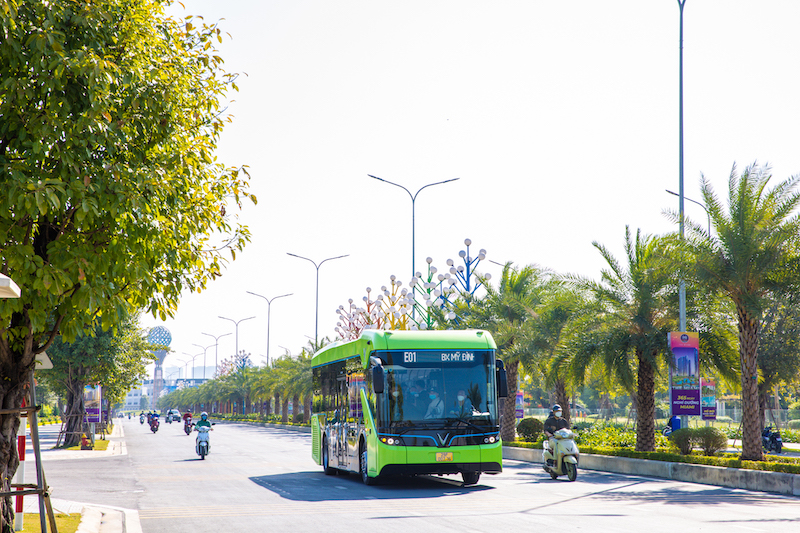First electric bus route opened in the capital city
The route is expected to make a turning point in the process of building a green mass transit network.
The first electric bus service route of Hanoi’s mass transit network started rolling, marking a milestone of the city and Vingroup in contribution to reducing greenhouse gas emissions in traffic.
| The first electric bus line is underway in Hanoi. Photo: VinBus |
Speaking at the opening ceremony, Vice Chairman of the Hanoi People’s Committee Nguyen Manh Quyen on December 2 said the route is a highlight of the capital city’s urban transport in 2021, creating a turning point in the process of building a green mass transit network.
The fare policy applied by VinBus Ecology Transport Service is the same as diesel or gasoline bus lines with ticket prices ranging from VND7,000 (US$0.3)-VND9,000 ($0.4) depending on the distance traveled. The monthly pass is between VND55,000 ($2.4) and VND200,000 ($8.7).
The elderly, people with meritorious services, people with disabilities, children under six years old, and poor households are entitled to use the service free.
Passengers can register and buy a monthly pass online on the website vedientu.vinbus.vn or VinID app.
Le Khac Hiep, Vice Chairman of Vingroup, said VinBus operates as a non-profit organization with the goal of contributing to the construction of a modern and environmentally friendly public transport network.
“In 2022, we continue to open more electric bus lines to connect with the municipal mass transit network with the aim of serving a larger number of people,” he said.
The operating frequency of the electric bus routes is 15-20 minutes, from 5am to 9pm daily.
The first electric bus line No. E03 runs through central roads, connecting the East and the West of the city with 15 stops.
VinBus will this month deploy two electric bus routes with the No. E05 from Long Bien to Smart City Urban Areaand No. E01 from My Dinh Bus Station to Ocean Park Urban Area.
VinBus also put into operation Smart City Depot located at Vinhomes Smart City Urban Area, in Nam Tu Liem District, starting from December 2. This is the 3rd depot in the system of VinBus with a total area of 14,500 m2.













